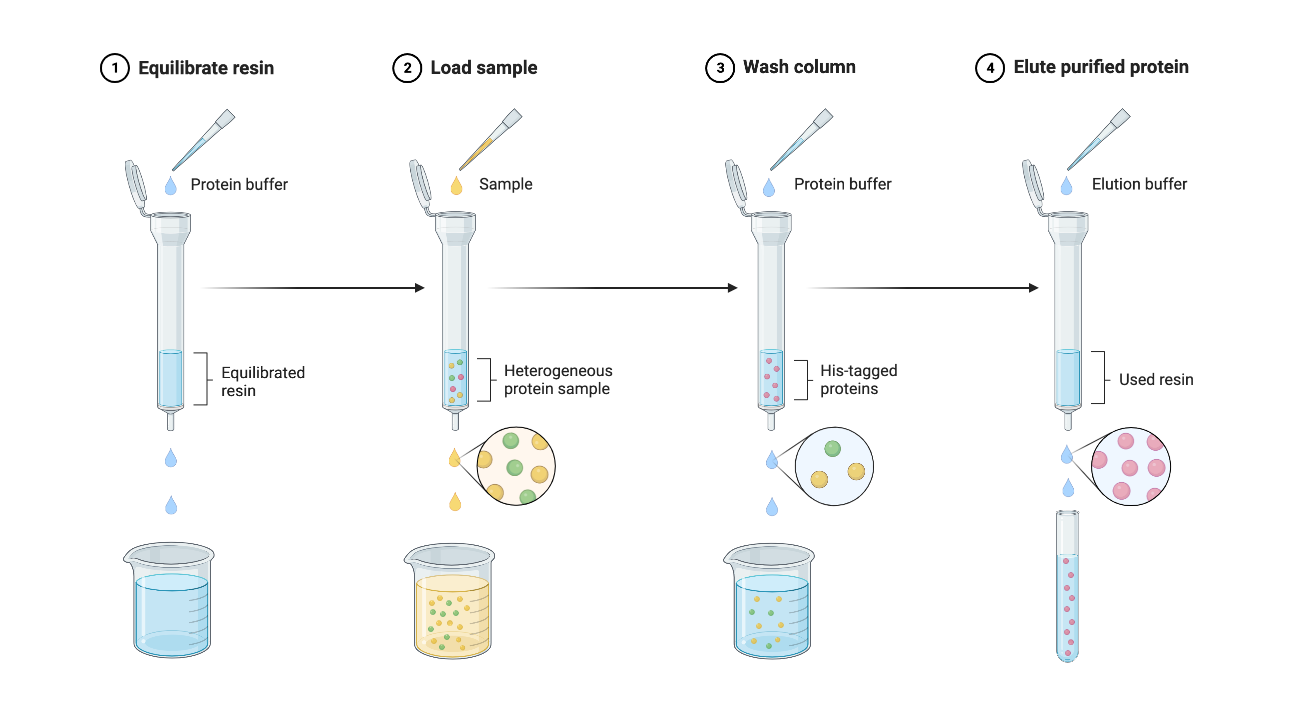Difference between revisions of "Part:BBa K4439007"
Charlottedml (Talk | contribs) |
Charlottedml (Talk | contribs) |
||
| Line 19: | Line 19: | ||
<br> | <br> | ||
| − | [[File:N | + | [[File:N-AS-8C_Silk_Characterisation_Table.png|500px]] |
<br> | <br> | ||
Revision as of 23:25, 11 October 2022
mSA-N[AS]4C-CBD-10xHis
Contents
Abstract
To complete
Sequence and Features
Assembly Compatibility:
- 10COMPATIBLE WITH RFC[10]
- 12COMPATIBLE WITH RFC[12]
- 21COMPATIBLE WITH RFC[21]
- 23COMPATIBLE WITH RFC[23]
- 25COMPATIBLE WITH RFC[25]
- 1000COMPATIBLE WITH RFC[1000]
Protein Characterization
Usage and Biology
- Silk proteins demonstrate interesting mechanical properties such as toughness, strength, lightweight, biodegradability and the possibility to produce different morphologies (fibers, foams, capsules, films). In addition to this, silk proteins comprise a high percentage of the amino acids glycine, serine and alanine which have an intermediate hydrophobicity.
- Green lacewing insects produce two types of silk: one produced by the larvae (cocoon) and the other by adult females (egg-stalk). The adult produced silk acts as a protective shelter and structural support for egg stalks, which are two ideal properties for a waterproof coating for our aerogel.
- In green lacewings, two serine- and glycine-rich silk proteins (Ma1XB1 and Ma1XB2) have been identified, both with highly repetitive core domains and small terminal domains. The core domain’s structure is rich in β-sheets with an approximative sheet-length of four amino acids between turns. These form repeating structural units constituting β-helices which have a significant positive correlation with the proteins’ surface hydrophobicity. A consensus motif for the core domain of Ma1XB2 (named [AS])had already been generated. Furthermore, a recombinant protein constituted by 8 repetitions of this [AS] module had also already been expressed in E. coli.
Modeling
To complete
Experiments
Figure 1 | Protein Purification Protocol using Ni-NTA Beads
- For more information, check out our Protocols page on our wiki.
Figure 2 | Diagram of Procedure for Silk Biofilm Fabrication
- For more information, check out our Protocols page on our wiki.
Lab's Tips and Tricks
To complete
Results
Expression
To complete
Purification
To complete
Biofilm Fabrication
To complete
Hydrophobicity tests
To complete


